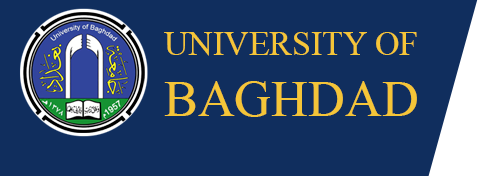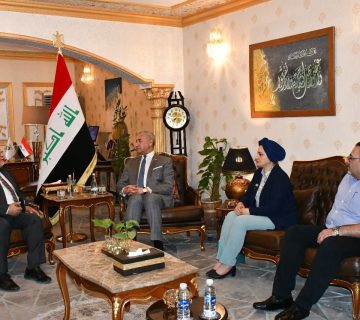The college of Ibn-Rushd discusses the future of e-learning
The department of Kurdish language at the college of education – Ibn-Rushd, university of Baghdad held a symposium entitled “mobile learning” sponsored by dean of the college, prof. Dr. Kazim Karim al-Jabri as part of the series of educational symposiums on the latest developments in modern teaching methods and e-learning. Assistant prof. Dr. Yousra Mohamed Abdullah, Dr. Azhar Alwan Kashash gave lectures that included several themes of mobile learning which is considered as a new linguistic concept referring to the use of cellular and wire or wireless phones as part of a participatory learning environment ungoverned by time or place, as an extension of e-learning and as a form of online learning. The lecturers pointed out that (M-learning) or the term “Mobile” refers to (anything that is moving or moveable). The idea of mobile learning goes back to the eighties of the last century when Mark Wiser used the term “diffused computing” to refer to the phenomenon of diffused computers in all fields and everywhere, so people became engaged in an electronic computerized environment where everything can be processed digitally. The researchers asserted that learning is no longer limited to usual computers made up of CPU, monitor and keyboard, but became a process of learning through using cellular phones, digital camera and e-books that would reduce or demise the use of computers in future. The symposium discussed the importance of mobile learning as a blended learning consisting of instructions, lectures and cognitive tasks made by the teacher via internet and received by student towards understanding the complex relationships and interactions occurring between them and creating social and educational environments affecting students positively. Vavoula & Sharples suggested three ways to increase the effectiveness of mobile learning: taking advantage of time as much as possible, being free from place and finding other teaching methods. The symposium concluded with asserting that this type of learning creates a new learning environment by exchange of information among the educated and the lecturer through using mobile devices in teaching, learning, training processes as well as supporting functions and administrating that tasks of the student and the supervisor, available to a large number of students in a way easy to apply and use in any type of mobile devices, so it is not only an extension of e-learning, but it is the future of e-learning.


